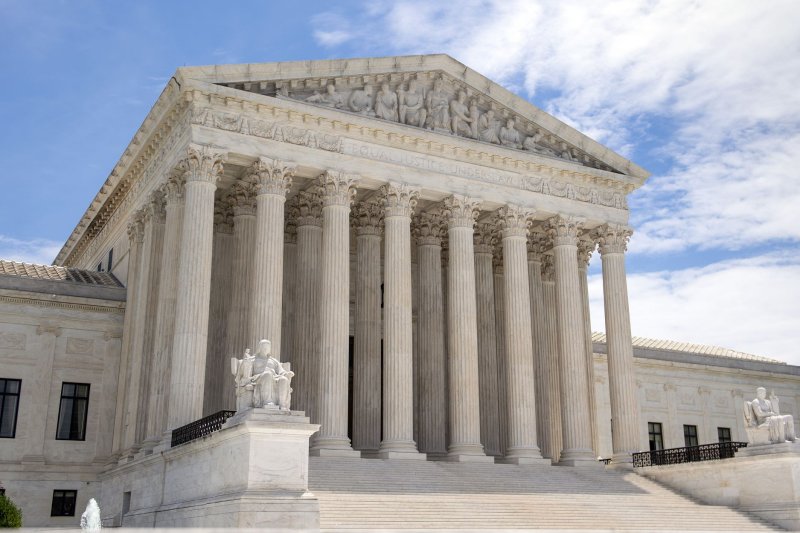The U.S. Supreme Court on Monday backed an effort to strike down a law shielding the director of the Consumer Finance Protection Board from being fired by the president. File photo by Kevin Dietsch/UPI. |
License Photo
June 29 (UPI) -- The U.S. Supreme Court on Monday struck down a law shielding the director of the Consumer Finance Protection Board from being fired at will by the president.
In a 5-4 decision, the high court backed an argument by a California-based law firm contending the law violated the U.S. Constitution's separation of powers rule, overturning a pair of federal district court and appellate court decisions.
However, it rejected arguments that the entire legislation creating the board should be struck down, thus allowing the CFPB to continue.
Chief Justice John Roberts wrote the majority opinion, joined by fellow conservatives Clarence Thomas, Samuel Alito, Neil Gorsuch and Brett Kavanaugh.
Justices Elena Kagan, Ruth Bader Ginsburg, Stephen Breyer and Sonia Sotomayor dissented.
Congress created the CFPB in 2010 to protect consumers from abusive lending following the financial crisis, and rather than allowing its head to be fired by the president as is the case with most federal boards and agencies, it was set up as a semi-independent entity under the auspices of the Federal Reserve and its chief can only be removed "for cause" such as personal malfeasance, rather than for political or policy differences.
In the case Seila Law LLC v. Consumer Finance Protection Board, the Trump administration challenged court precedents stretching back to the 1930s New Deal era allowing for the creation of independent federal boards and agencies to perform watchdog functions free from political influence, such as the Securities and Exchange Commission and the Federal Reserve Board.
That position alarmed consumer advocates, but was backed by the U.S. business community.
The court's majority, however, ultimately opted to allow the board to continue, separating the issue of the director's independence from its overall constitutionality.
In writing the majority opinion, Roberts contended the director's exemption "has no foothold in history or tradition" and "clashes with constitutional structure by concentrating power in a unilateral actor insulated from presidential control."
"An agency with a structure like that of the CFPB is almost wholly unprecedented," he wrote.
But Kagan, in a dissent, said the decision "wipes out a feature of that agency its creators thought fundamental to its mission -- a measure of independence from political pressure."
She added, "What does the Constitution say about the separation of powers -- and particularly about the president's removal authority? (Spoiler alert: about the latter, nothing at all.) "















